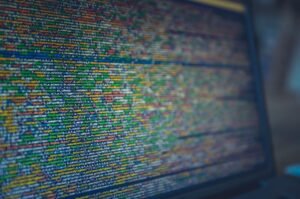Open AI and Healthcare
In recent years, there has been an increasing interest in the application of Open AI in the healthcare industry. Open AI refers to the use of artificial intelligence technologies that are freely available for anyone to access, use, and modify. This article explores the potential of Open AI in revolutionizing the healthcare sector and its impact on patient care, diagnosis, treatment, and medical research.
Key Takeaways:
- Open AI has the potential to revolutionize the healthcare industry by enhancing patient care and treatment outcomes.
- AI technologies can assist in accurate diagnosis and provide personalized treatment plans.
- Open AI can improve medical research and accelerate drug development.
**Artificial Intelligence** technologies have already proven to be extremely beneficial in healthcare. They have the capability to analyze vast amounts of medical data, identify patterns, and assist healthcare providers in making informed decisions. *AI has the potential to transform the healthcare landscape by improving diagnostic accuracy and enhancing patient care.*
**Open AI** platforms, such as TensorFlow and PyTorch, provide a unique opportunity for healthcare professionals and researchers to collaborate, share data, and develop innovative applications. With open-source AI tools, experts from different domains can work together to address complex healthcare challenges.
Applications of Open AI in Healthcare
There are numerous applications of Open AI in healthcare that are currently being explored and developed:
- **Disease Diagnosis**: Open AI can analyze medical images, lab results, and patient symptoms to aid in accurate disease diagnosis, enabling timely intervention.
- **Predictive Analytics**: By analyzing patient data and identifying patterns, healthcare providers can proactively predict and mitigate potential health risks.
- **Drug Discovery**: Open AI can assist in speeding up the drug discovery process by analyzing vast amounts of chemical and biological data, thus expediting the development of new treatments and therapies.
- **Robotics and Automation**: AI-powered robots can perform complex surgeries with precision, reducing the margin for error and improving surgical outcomes. Additionally, automation can streamline administrative processes, allowing healthcare professionals to focus more on patient care.
- **Virtual Assistants**: Virtual assistants powered by AI can provide personalized healthcare recommendations, answer medical queries, and offer support to both patients and healthcare providers.
*Open AI has the potential to transform healthcare accessibility and affordability. By utilizing AI technologies, healthcare services can be made available to remote or underserved areas, bridging the gap between urban and rural healthcare facilities.*
Open AI and Data Privacy
While Open AI brings several advantages to healthcare, it also raises concerns regarding data privacy and security. Proper data encryption, anonymization, and compliance with privacy regulations are essential to protect sensitive patient information.
**Table 1**: The Top Open AI Platforms in Healthcare:
| Platform | Description |
|---|---|
| TensorFlow | A popular open-source AI library for building machine learning models in various healthcare applications. |
| PyTorch | A flexible deep learning framework that supports dynamic computational graphs, widely used in medical imaging and natural language processing. |
| Keras | An open-source neural network library that focuses on user friendliness and ease of implementation, often used for building medical image classification models. |
The Future of Open AI in Healthcare
As technology continues to advance, Open AI is expected to play an increasingly significant role in healthcare. The collaborative nature of open-source AI platforms enables researchers, developers, and healthcare professionals to collectively work towards improving patient outcomes and advancing medical knowledge.
**Table 2**: The Pros and Cons of Open AI in Healthcare:
| Pros | Cons |
|---|---|
|
|
**Table 3**: Open AI Startups in Healthcare:
| Startup Name | Description |
|---|---|
| Health Catalyst | Provides AI-powered data analysis for healthcare decision-making and outcomes improvement. |
| Butterfly Network | Develops handheld, pocket-sized ultrasound devices powered by AI for remote and point-of-care diagnostics. |
| Zebra Medical Vision | Uses AI algorithms to analyze medical imaging data and assist in the early detection of diseases. |
AI in healthcare is not a substitute for healthcare professionals, but a tool to assist them in delivering better patient care. Open AI has the potential to transform the way healthcare is delivered, making it more accurate, efficient, and accessible to all. As the healthcare industry continues to embrace Open AI technologies, the benefits for patients and providers alike are expected to be manifold.

Common Misconceptions
Misconception 1: Open AI can replace healthcare professionals
One common misconception about OpenAI in healthcare is that it has the potential to completely replace healthcare professionals. However, this is not the case. While OpenAI can assist healthcare providers in various ways, such as diagnosing diseases or suggesting treatment options, it cannot replace the expertise and human touch that healthcare professionals bring to patient care.
- OpenAI in healthcare aims to augment healthcare professionals, not replace them.
- Healthcare professionals bring critical interpersonal skills and empathy that AI cannot replicate.
- AI technologies like OpenAI can help healthcare professionals make more accurate diagnoses and improve treatment outcomes.
Misconception 2: Open AI is always error-free
Another misconception is that OpenAI is infallible and always provides error-free results. While AI technologies have advanced significantly, they are not immune to errors or biases. OpenAI systems rely on the data they are trained on, and if the training data is biased or incomplete, it can lead to inaccurate results. It is essential to continually monitor and evaluate AI systems to ensure their accuracy and mitigate potential risks.
- AI systems like OpenAI are not always error-free and can produce incorrect or biased results.
- Biases in training data can lead to biased outcomes, especially in healthcare where fairness and equity are crucial.
- Vigilant monitoring and evaluation are necessary to identify and address errors in AI systems like OpenAI.
Misconception 3: Open AI will replace the need for clinical research and trials
There is a misconception that OpenAI can replace the need for clinical research and trials in healthcare. While AI can assist in data analysis and accelerate certain aspects of research, it cannot replace the rigorous scientific process required for clinical trials and the development of evidence-based medicine. Clinical trials involve complex ethical considerations and ensure the safety and efficacy of medical interventions.
- AI can support clinical research and accelerate certain aspects such as data analysis.
- Clinical trials are essential to validate the safety and efficacy of medical interventions, which AI cannot replace.
- OpenAI can aid in identifying potential research areas and patterns in vast amounts of data, but the scientific process must still be followed.
Misconception 4: Open AI is inherently biased
Some people believe that OpenAI is inherently biased, contributing to healthcare disparities. While biases can exist in AI systems, they are not inherent to AI itself. Bias often stems from the data used to train AI models, which can be reflective of societal biases and disparities. Ensuring diverse and representative training data, along with careful algorithm design and ongoing monitoring, can help mitigate biases in OpenAI and create more equitable healthcare systems.
- OpenAI is not inherently biased, but biases can exist due to training data and algorithm design.
- Data used to train AI models can be biased and lead to disparities in healthcare.
- To reduce bias, diverse and representative training data should be used, and ongoing monitoring is necessary.
Misconception 5: Open AI will lead to job losses in healthcare
There is a fear that the implementation of OpenAI in healthcare will lead to mass job losses for healthcare professionals. While AI may automate some routine tasks and improve efficiency, it also creates new opportunities and requires human oversight. AI can support healthcare professionals in their work, allowing them to focus more on complex decision-making and patient interactions, ultimately enhancing the quality of care delivered.
- OpenAI can automate routine tasks, freeing up healthcare professionals to focus on more complex decision-making.
- AI implementation can create new job roles and opportunities in healthcare.
- Human oversight is necessary to ensure the quality and ethical use of OpenAI in healthcare.

AI Usage in Healthcare
Artificial intelligence (AI) is revolutionizing the field of healthcare by enhancing medical diagnosis, treatment, and research. The following table highlights the various applications of AI in healthcare.
Impact of AI-Enabled Robotics on Surgery
Robotic surgical systems, powered by AI, are transforming surgical procedures by increasing precision and reducing invasiveness. The table below illustrates how AI-enabled robotics are changing the surgical landscape.
Utilization of AI in Disease Diagnosis
AI algorithms are being used to diagnose and predict diseases with remarkable accuracy. This table showcases some of the diseases that can be effectively diagnosed using AI technology.
AI-Enhanced Drug Discovery Process
The integration of AI in drug discovery has significantly expedited the process of developing new medicines. The following table demonstrates how AI is accelerating drug discovery efforts.
Role of AI in Personalized Medicine
Personalized medicine, tailored to individual patient characteristics, is made possible by AI technologies. This table illustrates how AI is enabling personalized treatment strategies.
AI-Driven Virtual Assistants in Healthcare
Virtual assistants powered by AI are facilitating patient management, remote care, and streamlining administrative tasks. The table below shows some of the ways AI-driven virtual assistants are transforming healthcare.
Impact of AI on Medical Imaging
AI algorithms are revolutionizing medical imaging techniques, assisting radiologists in accurate diagnosis and analysis. The following table outlines the benefits of AI in medical imaging.
Advancements in AI-Powered Genomic Analysis
AI is propelling genomic analysis, enabling researchers to uncover insights into diseases, genetic variations, and treatment options. This table illustrates the breakthroughs in AI-powered genomic analysis.
AI-Powered Chatbots Assisting Patient Engagement
AI chatbot technology is reshaping patient engagement by offering 24/7 support, answering queries, and providing personalized recommendations. The table below showcases how AI-powered chatbots are enhancing patient experience.
Utilization of AI in Health Monitoring Wearables
Wearable devices integrated with AI technology are increasingly used for health monitoring and disease management. The following table highlights the key features and benefits of AI-powered health wearables.
In summary, the integration of AI in healthcare is transforming the industry, enabling accurate diagnosis, personalized treatment, and supporting healthcare professionals. From robotics-assisted surgery to AI-powered chatbots, the potential for AI in revolutionizing healthcare is vast and promising.
Frequently Asked Questions
Open AI and Healthcare
What is Open AI?
Open AI is a research organization focused on developing artificial intelligence technologies and making them safe, accessible, and beneficial for humanity.
How can Open AI be applied in healthcare?
Open AI can be applied in healthcare to improve patient outcomes, assist in medical research, facilitate diagnostics, detect patterns in data, and provide personalized treatment recommendations, among other things.
Is Open AI currently being used in healthcare?
Yes, Open AI technologies are being utilized in healthcare, although their widespread implementation is still in the early stages. Many research institutions and medical organizations are exploring and piloting various AI applications in healthcare settings.
What are some specific use cases of Open AI in healthcare?
Some specific use cases include AI-powered disease diagnosis, treatment planning and decision support systems, remote patient monitoring, predictive analytics for patient outcomes, and drug discovery and development, to name a few.
What are the benefits of using Open AI in healthcare?
The benefits of using Open AI in healthcare include more accurate and timely diagnoses, improved treatment planning, better patient care and outcomes, increased efficiency in healthcare workflows, and the potential for new discoveries and advancements in medical research.
What are the challenges and risks associated with implementing Open AI in healthcare?
Challenges and risks include data privacy and security concerns, potential biases in AI algorithms, ethical considerations related to decision-making by AI systems, regulatory hurdles, ensuring proper training and validation of AI models, and the potential impact on healthcare professionals’ roles and responsibilities.
How can Open AI help address the shortage of healthcare providers?
Open AI can help address the shortage of healthcare providers by automating certain tasks, facilitating remote patient monitoring, assisting in preliminary diagnosis, and providing decision support systems that can augment the capabilities of healthcare professionals.
Are there any ethical considerations in using Open AI in healthcare?
Yes, there are ethical considerations such as ensuring fairness and transparency in AI algorithms, guarding against bias and discrimination, protecting patient privacy and data security, and addressing the potential impact on human autonomy and decision-making.
What is Open AI doing to address the ethical concerns in healthcare AI?
Open AI is actively researching and developing AI technologies with a focus on safety and ethics. They are working on ways to mitigate biases, increase transparency in AI systems, promote responsible AI use, and engage in collaborations and partnerships to develop AI frameworks and guidelines.
How can healthcare professionals prepare for the integration of Open AI?
Healthcare professionals can prepare by staying updated on developments in AI technology, familiarizing themselves with AI applications in healthcare, enhancing their data literacy skills, participating in training programs, collaborating with AI experts, and actively engaging in discussions and debates surrounding AI integration in healthcare.




